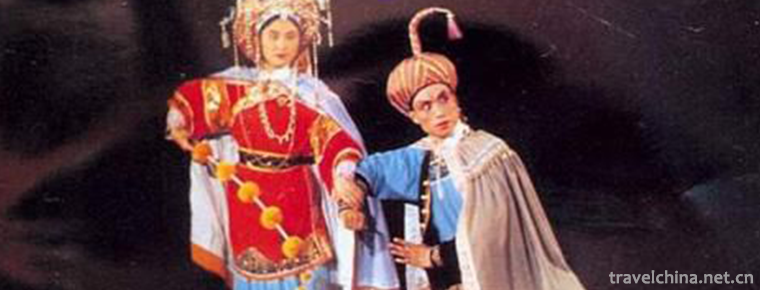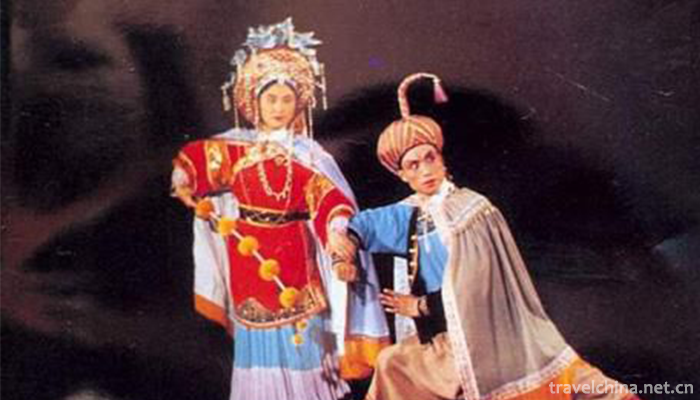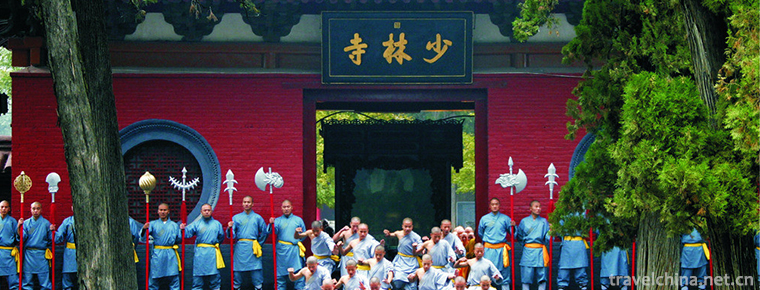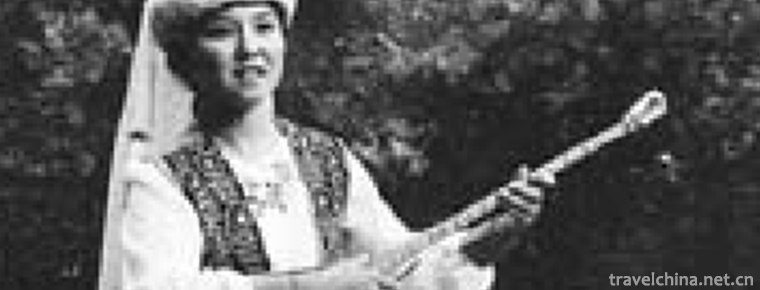2018-11-11

- By ChinaWiki.net
- Chinese Edition
- 2019-06-10
Guizhou opera
Guizhou Opera is one of the local operas popular in Guizhou Province. It evolved and developed from the opera Yangqin (also known as "Wenqin", "Guizhou Playing Ci") which is popular in Guizhou Province in 1953. It mainly uses Yangqin as accompaniment instrument and has strong local characteristics.
On June 7, 2008, "Guizhou Opera" declared by Guizhou Opera Troupe was listed in the second batch of national intangible cultural heritage list with the approval of the State Council.
Historical Origin
The predecessor of Guizhou opera is Guizhou Yangqin. Guizhou Yangqin, also known as Guizhou Playing Ci and Wenqin, is a rap art with Yangqin as the main accompaniment instrument and sitting and singing in different roles. During the Jiaqing period of Qing Dynasty, Yan Ci Hui of Guizhu County and Zhang Guohua of Xingyi in Qingdaoguang five years (1825) mentioned in his poems that Guiyang had Yangqin activities. After many years of research, Yu Baiwei believes that the Yangqin has been popular in Guizhou since the reign of Kangxi in the Qing Dynasty, and has a history of more than 200 years. During the Guangxu period, Yunnan Yangqin, Sichuan Yangqin, Sichuan Qingyin and Hunan Changde Silk String were introduced into Guizhou one after another, which promoted the development of Guizhou Yangqin. In the ninth year of Guangxu (1833), Wang Shiqing, Jiang Fasan and Ding Xiaorui established the Yangqin "Three Friends'Club" in Guiyang and sang openly in the "Wenyin Tea Club". After that, Wenyin Fuyue Society was established in Guangxu 11 years in Western Guizhou, Zhijin Yuefu in Guangxu 15 years, Xiangye Tea House in Anshun 16 years, and Tongren Entertainment Club in Xuantong 3 years (1911). Around 1921, Zunyi, Anshun, Panxian, Tongren, Duyun, Xingyi, Anlong, Dushan, Dafang and Zhenfeng appeared one after another. Yangqin Band Society. After years of singing practice, Guizhou Yangqin gradually matured and finalized. According to "Guizhou Playing Vocabulary Compilation", the earliest Guizhou Yangqin singing book is "Erdumei", which was compiled by Wang Shiqing in the 16th year of Guangxu.
In 1950, the Yangqin artists in Dading (now Dafang) County, in order to cooperate with the campaign of "Bandits Against Hegemony", used the tune of Guizhou Yangqin to compose the Qin Opera play "Hate of the Poor", and performed in local dialect, thus creating the pioneer of Guizhou Opera. This play uses tunes accompanied by dulcimer, three strings and huqin to convey tragic and comic plots. Its lines are easy to understand and are welcomed by the masses. In the autumn of 1952, the Yangqin artists Xu San, Feng Bingkun, Li Shaozhi, Wei Liheng, etc. in Qianxi County, matched the Wu opera script "Hundred Days Margin" with Guizhou Yangqin singing tune. They imitated the performances of Peking Opera, Sichuan Opera and gongs and drums in the local dialect, and performed successfully, and named Wenqin Opera. Later, Xu Sansan reorganized Guizhou Yangqin's traditional repertoire Moving Kiln into a rehearsal of Wenqin Opera. He performed for the first district and township cadres'meeting at Wushen Temple in the county. The familiar local dialect aroused the resonance of the audience. The performance was regarded as the birth of Guizhou Opera by the Guizhou Opera circle.
In the spring of 1954, an amateur violin troupe was set up in Qianxi County. In order to build up the audience base of Wenqin Opera, in the next two years, the troupe performed in 78% of the towns and villages in the county, which was generally welcomed. Subsequently, the troupe performed in the neighboring Jinsha and Zhijin counties, which was welcomed by the audience and inspired the Yangqin artists of the two counties to follow suit.
The emergence of Wenqin Opera and Qianxi Amateur Wenqin Opera Troupe has attracted the attention of cultural authorities. In May 1956, the people's government of Qianxi County approved the establishment of the Wenqin Opera Troupe of Qianxi County. The first professional Wenqin Opera Troupe appeared in Guizhou Province.
After 1957, under the influence of the Wenqin Opera Troupe of Qianxi County, professional or semi-professional Wenqin Opera Troupe was set up successively. From 1959 to 1960, two performances of Wenqin Opera were held. The Wenqin Opera Troupe of Qianxi County, as a local opera of Guizhou Province, visited Sichuan and performed in Chengdu and Chongqing.
In February 1960, Wenqin Opera was officially named Guizhou Opera and Guizhou Provincial Guizhou Opera Troupe was formed. In the same year, Zhou Enlai visited Guizhou and watched the choices of "Zhuo Wenjun" and "The Story of the Western Chamber" performed by the troupe. In June of the same year, the troupe brought to Beijing performances such as "Qin Niangmei", "Zhang Xiumei", "Red Flag Canteen", "Female Miners Platoon", "Moving Kiln", "Good Period to Copy Red" and "Funeral Flowers". Later, it went to Shanghai and Hangzhou for public performances, which were welcomed and praised.
In 1960, Guizhou Guizhou Opera Troupe, Zunyi Guizhou Opera Troupe and Bijie Guizhou Opera Troupe jointly rehearsed excellent repertoires of other operas such as "Half Scissors", "After reunion", "Pearl Tower", "Double Jade Cicadas", and created and performed modern operas such as "Long Mountain, High Water" and "People Handling Cases". In September 1965, Guizhou Guizhou Guizhou Opera Troupe's Shangao Shuichang, Zunyi Guizhou Opera Troupe's Kao Yi Nu, Bijie Guizhou Opera Troupe's Guanguan, Kai Lock and other operas, all went to Chengdu to participate in the Southwest Regional Drama Local Performance.
Inheritance and Protection
From its birth to the end of 1980, Guizhou Opera has created, adapted, transplanted and staged a large number of plays in the past 20 years. Among them, the excellent traditional Dong Opera drama "Qin Niang Mei" was adapted and filmed into a stage art film in 1960. The historical story play "Lady Luxiang" created by the Yi people has reached a new level in compiling, directing, directing, music and dancing beauty. In September 1979, the opera went to Beijing to attend the performance of the 30th anniversary of the founding of the People's Republic of China. It won the first prize of creation and performance awarded by the Ministry of Culture. He was awarded the first prize for drama creation and performance by the Central Ministry of Culture. There are also the Miao historical drama Zhang Xiumei, and other modern plays such as "Long Mountain, High Water", "Blood Covered Felt", "Kao Yi Nv", "Gatekeeper", etc. The traditional dramas such as "Moving Kiln", "Pearl Tower" and "Three Difficulties Groom" which have been reorganized and adapted are loved by the audience.

Ask a Question
Your email address will not be published.



0 Questions